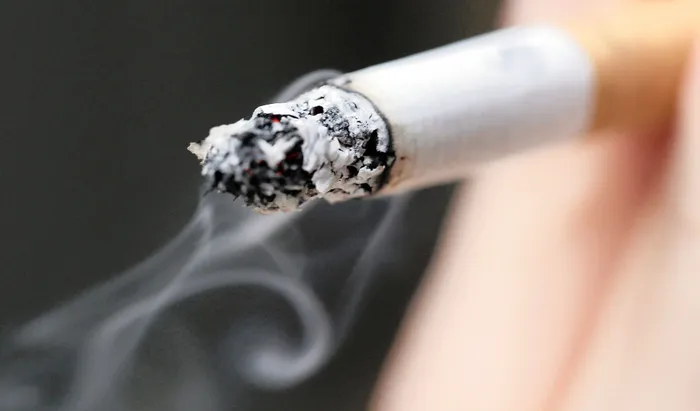A Deadly Trade-Off: Tobacco’s Toll in Pakistan Echoes Warnings for South Africa
HEALTH MATTERS

Each year, tobacco use kills approximately 164 000 people in Pakistan, according to the World Health Organization (WHO).
Image: Supplied
In Pakistan’s power corridors, a troubling trade-off is quietly unfolding—one where human lives are weighed against financial returns.
Tobacco, despite its well-known links to disease and death, remains deeply embedded in the country’s economy. Now, as death tolls rise and public hospitals overflow, the government faces a grim dilemma: protect public health or preserve a major source of national revenue. Each year, tobacco use kills approximately 164 000 people in Pakistan, according to the World Health Organization (WHO).
These aren't just statistics — they represent parents, workers, and teenagers lost to lung cancer, heart disease, and stroke. Tobacco-related illnesses have become a major part of the country’s non-communicable disease burden, which is steadily increasing.
Yet, tobacco products remain widely accessible, lightly regulated, and marketed in subtle ways—especially to the youth. While cigarette packs carry graphic health warnings and anti-smoking campaigns exist, these efforts are undermined by lax enforcement and powerful industry influence. This paradox—acknowledging tobacco’s harms while benefiting from its profits — is not unique to Pakistan.
The situation offers a cautionary tale for South Africa, where similar tensions exist. In 2023–24, Pakistan’s tobacco industry contributed over 200 billion Pakistani rupees (roughly R13.5 billion) in taxes, according to the Federal Board of Revenue. This includes excise duties and sales tax, mostly from cigarettes. For an economy under pressure — facing budget deficits and IMF obligations — this income is difficult to ignore.
However, this revenue comes at a steep cost. A 2021 study by the Pakistan Institute of Development Economics (PIDE) found that tobacco-related illness and death cost the economy over 615 billion rupees annually — about R41 billion. In other words, for every rand (or rupee) gained from tobacco, three are lost managing its consequences. This economic burden is familiar to South Africans.
Our tobacco-related healthcare costs are estimated in the billions annually, with thousands of deaths attributed to smoking.
As in Pakistan, the presence of a strong tobacco lobby and a thriving illicit cigarette trade complicates reform. In both countries, lawmakers from tobacco-growing regions are reluctant to take action, often citing job losses and the risk of fuelling illegal trade. In Pakistan, illicit cigarettes are thought to make up over 30% of the market, though experts dispute the figure. South Africa, too, has struggled to control the spread of untaxed, unregulated cigarettes, especially during and after COVID-19 lockdowns.
Pakistan’s youth smoking rate is another red flag. Around 10% of schoolchildren aged 13–15 use tobacco products.
Public health officials say this reflects a failure in education and regulation. The glamorisation of smoking, peer pressure, and the availability of single cigarettes all play a role, factors that South African schools and communities also grapple with. Meanwhile, newer nicotine products like e-cigarettes and heated tobacco devices are complicating efforts further.
Marketed as “safer” alternatives, these products are growing in popularity among urban youth in both Pakistan and South Africa. But experts warn that their long-term health effects remain uncertain and that they often serve as a gateway to traditional smoking.
For now, Pakistan’s healthcare system is straining under the pressure.
Overcrowded oncology wards and under-resourced rural clinics are unable to cope with the long-term fallout of tobacco use. South Africa’s public health system, already stretched by TB, HIV, and NCDs, could face a similar crisis if tobacco regulation remains inconsistent.
Despite repeated calls from health advocates, bold political leadership on tobacco control remains absent in Pakistan.
Public health often takes a backseat to short-term economic concerns — a reality that rings true in South Africa as well. As both nations face growing, youthful populations and rising urbanisation, the choices made today will determine future health outcomes.
Pakistan’s silent struggle with tobacco offers a clear warning: delaying action comes at a deadly price.